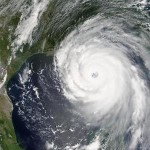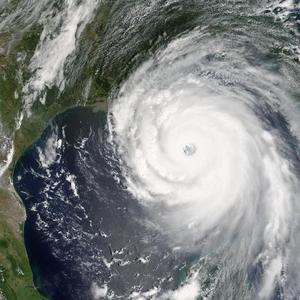 The National Oceanic and Atmospheric Administration (NOAA) is predicting an active Atlantic hurricane season. This week, which marks National Hurricane Preparedness Week, familiarize yourself with the hazards associated with coastal storms and hurricanes.
The National Oceanic and Atmospheric Administration (NOAA) is predicting an active Atlantic hurricane season. This week, which marks National Hurricane Preparedness Week, familiarize yourself with the hazards associated with coastal storms and hurricanes.
Coastal storms, including nor’easters, tropical storms and hurricanes, can and do affect New York City. New York is among the country’s most susceptible cities to hurricane hazards. Although cities like New Orleans and Houston experience hurricanes more often, New York City’s geography makes its population especially vulnerable to wind and flooding.
Each of the five boroughs has a coastline, and much of the city is very densely populated. In addition, a geographic phenomenon called the “New York Bight” will magnify a hurricane’s effects on the land. The New York Bight occurs because the New York and New Jersey coastlines meet at a right angle. From this junction, the New York Bight will guide a storm surge directly into New York City, amplifying flooding and related damage.
With sustained winds of 74 mph or greater, hurricanes can flatten buildings, topple trees and turn loose objects into deadly projectiles. A major hurricane could push more than 30 feet of storm surge into some parts of New York City.
It’s important New Yorkers take the time to prepare. All residents should have a plan in the event they need to evacuate or ride out the storm at home.
Download the Ready NY hurricane guide: English — Espanol — More Languages
Protecting Yourself and Your Property
- Prepare to be self-sufficient for at least three days without help or emergency services. Prepare a Go Bag and an Emergency Supply Kit. Assume that many of the streets and stores in your neighborhood will be closed. A watch may be followed bydisruptions to electricity, gas, water or telephone service.
- Check on friends, relatives and neighbors, especially those with disabilities or special needs and assist them with their preparation, if possible. Contact family members outside your household to coordinate and inform each other about preparations. Avoid separating your immediate family. Consider developing a disaster plan.
- Bring inside loose, lightweight objects, such as lawn furniture, garbage cans, garden tools and toys. Anchor objects that will be unsafe to bring inside, like gas grills or propane tanks. Turn off propane tanks.
- If you own a vehicle, fill your gas tank. If you own a boat, moor or move it to a safe place well before the storm causes maritime conditions to deteriorate. If you own a mobile home/trailer, tie it down securely.
- Shutter windows securely and brace outside doors.
- Place valuables into waterproof containers or plastic bags.
- Take out extra cash.
Prepare for Water and Sewer Disruptions
- To keep perishable food cold, freeze water in plastic jugs and use in freezer or coolers. Fill up other emergency water containers.
- Clean jugs, bottles and other containers. Scrub bathtubs thoroughly, sponge and swab with regular, unscented liquid chlorine bleach, then rinse. Let the tub and other containers dry. Fill with water.
- If you have a pool, do not drain it completely. Instead, drop the level by one or two feet. Submerge outdoor furniture and pool equipment in the pool. Turn off electricity to pool pump. Add extra chlorine to compensate for heavy rains.
- Keep five-gallon buckets with tight-fitting lids for use as emergency toilets. Line each bucket with a heavy-duty plastic trash bag
- Learn more about food supply preparation for an emergency
Prepare for Power Disruptions
- Do not use candles or kerosene lamps as light sources, as they can pose a fire hazard. Instead, keep a supply of flashlights and extra batteries on hand.
- Turn your refrigerator and freezer to coldest settings. Open only when absolutely necessary, then close quickly.
- In the event that you need to evacuate your home, unplug appliances to prevent damage in case of an electrical power surge.
- Authorities will instruct you if you should turn off utilities.
Source: NYC Office Of Emergency Management







